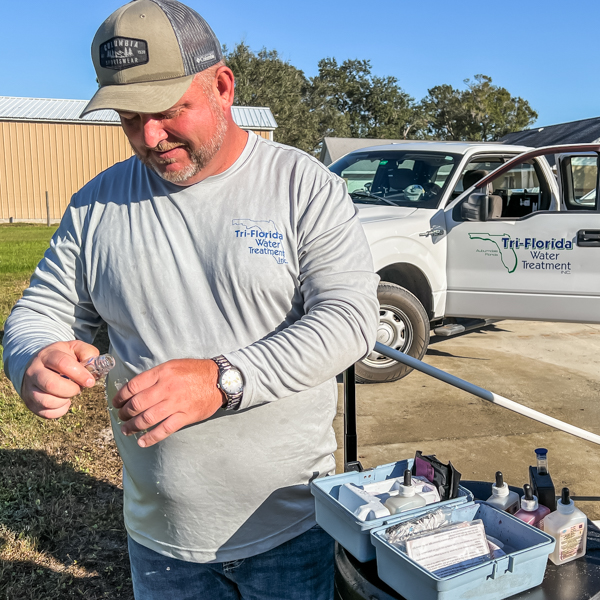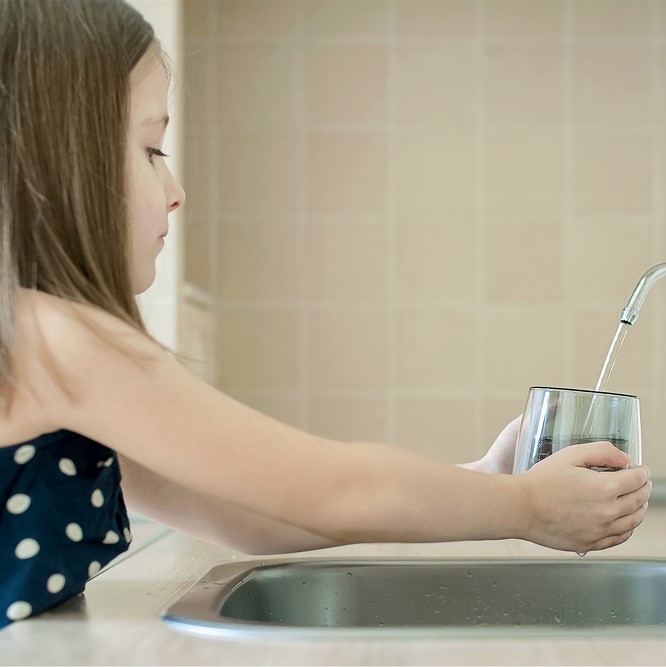How We Can Improve Your Home’s Water Quality
Let’s be honest; most people hate their tap water. Whether it’s the taste, the odor, or the fear that it’s unsafe to drink, the average household spends thousands on bottled water every year to avoid drinking from the tap. And it doesn’t make sense when you consider most homeowners pay for tap water only to avoid using it. But what if there was a cost-effective way to get better-tasting and healthier tap water? There is, and we’ll show you how.
 Water Analysis
Water Analysis
The first thing we can do is perform a free in-home water analysis to see what the mineral content is and if there are any concerns that could affect your health. If you get your water from a municipal supplier, you should be confident it’s safe to drink. Federal, state, and local governments regulate municipal water treatment facilities to ensure standards. However, these regulations allow a small number of bacteria, viruses, and other chemicals to be present, and the water is still considered safe for drinking.
It’s good to analyze your water because, even if it was perfectly clean when it left the water treatment facility, there’s no telling what it could pick up on the way to your home. Once we determine what’s in your water, we can recommend a system to solve whatever problem you have.
Water Treatment
We have several water treatment options that we can install based on your needs and budget. Our solutions are water filtration and reverse osmosis systems. Let’s look at each system and what it does.
Water Filtration
Water filtration systems are ideal for removing sediment, harmful microorganisms, heavy metals, volatile organic compounds (VOC), pesticides, herbicides, and chlorine. If you’re one of those who hate how your tap water smells and tastes, a whole home water filter is the solution. Typical home water filters filter water through various media, like activated carbon or sediment filters, and some have multiple stages for advanced filtration.
Reverse Osmosis
Reverse osmosis (RO) removes common chemical contaminants like sodium, chloride, chromium, copper, and lead. They’re also good for reducing the amount of arsenic, fluoride, radium, sulfate, calcium, magnesium, potassium, nitrate, and phosphorous.
RO systems use pressure to force water through a semipermeable membrane. The contaminants are trapped as water passes through the membrane, and clean water comes out of the other end.
Water Softeners
If you’re satisfied that your tap water is safe to drink and cook with, and the taste or smell does not put you off, maybe you’re sick of the mineral deposits it leaves behind. This is where a water softener can help.
Most people in America have hard water, meaning it contains high levels of magnesium and calcium. Hard water is safe to drink but wreaks havoc on your home and appliances. You can identify a household with hard water by noticing stains in the tub, shower, sink, toilet, or calcium buildup on faucets and other fixtures.
Besides the nasty stains, hard water significantly reduces the lifespan of your water-based appliances like coffee makers, washing machines, water heaters, and dishwashers.
A water softener works by a process called ion exchange. The main part of the filter is a tank filled with resin beads coated with sodium ions. When hard water enters the system, it flows through the resin tank, where the sodium ions attract the magnesium and calcium ions. These ions switch places, and you get soft water when it exits the system. As mentioned, we have a system or combination of systems that can solve your problem and make your water cleaner, more palatable, and healthier than before.
How Safe Is Tap Water?
Generally speaking, the average household’s tap water is safe, thanks to the Safe Drinking Water Act (SDWA) passed by Congress in 1974. The EPA sets standards that water suppliers must adhere to, and they require each region’s supplier to deliver an annual Consumer Confidence Report with test results that tell the customer what’s in their water. Of course, as we’ve seen many times in the news recently, things go wrong, and the water could be unsafe.

Many people avoid the problem by purchasing bottled water, but that’s not a great solution because of the cost and waste. And many people don’t know this, but bottled water comes from various sources, even public tap water.
The truth is that if you buy bottled water, it’s more cost-effective to install a whole home water treatment system. The money you save not buying bottled water will pay for the filter in about a year, and you get clean, healthy, better-tasting water from every tap in the house.
Taste the Difference
Call Tri-Florida Water Treatment today and ask about our free in-home water analysis and find out how a water treatment system can benefit you. Book an appointment by calling 863–965–1439.
